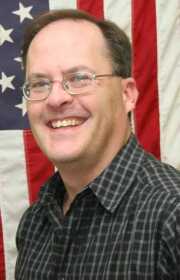Nation needs to break ‘cycle of hatred’

Hate still exists.
It’s a message that representatives with the Center for Human Rights in Boise stressed during a presentation I saw at the Anne Frank Memorial several years ago. It was one of many messages officials with this human rights’ organization stressed while my college friends and I took part in a program during one of our classes at Boise State University.
But hate isn’t limited to certain parts of the world or restricted to the pages of history books. The roots of hatred are still visible in places like Idaho, and it’s a reputation that convinces many in this country to avoid visiting Idaho, according to a representative with the Boise-based human rights organization.
This form of hatred continues to cloud the perceptions of those who have allowed it to cloud their minds and close them off from the damage hatred can inflict. For example, there are those out there that still deny the Holocaust ever happened -- that the slaughter of 11.5 million people at the hands of Nazi Germany is a myth.
These people refuse to accept the truth despite the overwhelming evidence that still exists more than 70 years after the Holocaust led to the death of people like Anne Frank. Her hand-written diary continues to provide some critical insight of how she and others like her were systematically targeted and killed over their beliefs.
Hatred exists due to apathy -- because people allow it to happen. This “spiral of injustice” often starts with stereotyping and the use of derogatory terms to describe groups of people. If left unchecked, this spiral leads to efforts to avoid these targeted groups followed by discrimination and eventually violence.
Sound familiar?
Over the past several years, it seems that a similar spiral of injustice started to grow within our own nation. Case in point: I remember the words of one person with direct political ties in Washington, D.C., who referred to those of an opposing political ideology as “deplorables.”
But instead of working to stop this dialogue, we’re seeing too many instances where people are criticized and condemned if they dare to say something that’s not considered “politically correct.” Instead, their political opponents use their self-perceived sense of entitlement to allow their behavior to go unchecked.
However, it’s these same people who feel they are immune to face similar consequences if they committed something similar. One thing that stands out were the countless times politicians would publicly criticize one former president.
Every day, opponents would yell, scream and shout various accusations against him without allowing the judicial system to provide an unbiased judgment on whether to take legal action against him.
But at the same time, these same political opponents wouldn’t allow people in this nation to criticize their political allies regarding the countless times they misspoke, struggled to remember something important or allowed questionable things happen while they were in office.
Herein lies the problem. We seem to have people from one political ideology who feel they’re somehow allowed to bend or break the rules because they’re “entitled.” Instead, the rules only apply to their opponents, who readily face punishment for anything they say that comes across as “offensive.”
From my perspective, this seems to represent what happened in Germany after Adolph Hitler allowed those in power to start persecuting Jewish people because of their “politically incorrect” religious beliefs.
To break this cycle of intolerance, people need to stand up and say “no” to this form of injustice. It’s one of the reasons why the Anne Frank Memorial in Boise still exists.
Adorning the brick and concrete walls of this memorial are 62 quotes submitted by people across the state. Each statement focuses on the need for equality or what happens when prejudice and intolerance are left unchecked.
Among them is a quote from Confucius who reminds us that, “What you do not want done to yourself, do not do to others.” It’s something I feel people in this nation need to remember, regardless of their political ideology, religious beliefs or social status.
Despite this message, we still have those out there who do everything they can to “erase” what the Anne Frank memorial sought to represent. In 2017 and again three years later, we had people going there to vandalize the memorial. This included painting anti-Semitic graffiti on areas inside the memorial – the same type of message the Nazi Party forced others to accept… or else.
While the actions of others speak volumes, words have a similar type of power, according to Lisa Keithley with the Treasure Valley human rights organization.
“Remember that words matter. Words are powerful,” she said.
During each tour of the Anne Frank memorial in recent years, she reminded visitors that words can make the difference between inflicting terrible and lasting harm or providing a lasting, positive impression on others instead. Her parting message was simple: “Use your words carefully and wisely.”
Because hatred still exists.
— Brian S. Orban
